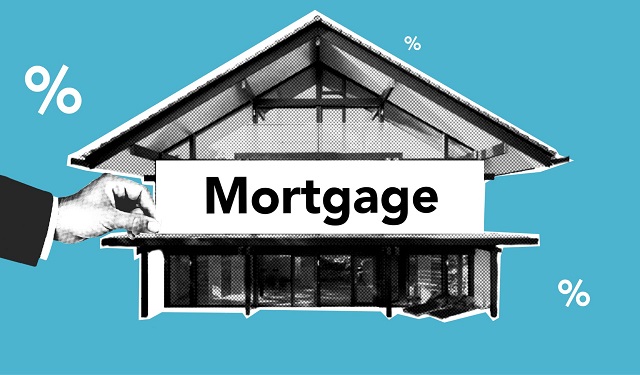Last updated Feb. 6, 2025 by Charles Zemub
Refinancing a car loan is a strategic financial decision that can potentially save you money and improve your financial situation. However, it’s not always the right move for everyone, and timing can be essential. Determining when to refinance and when to hold off can help you make an informed choice and optimize your financial health. This article delves into the key considerations and scenarios to guide your decision on whether to refinance your car loan or wait.
Understanding Car Loan Refinancing
Car loan refinancing involves taking out a new loan to pay off an existing car loan. This could result in acquiring a new interest rate, terms, or monthly payment obligations. Refinancing can be an attractive option, especially if it aligns with your financial goals and the current market conditions.
Benefits of Refinancing
-
Lower Interest Rate: One of the primary reasons to refinance is to secure a lower interest rate. If interest rates have fallen since you secured your original loan, refinancing could reduce your monthly payments and the total interest paid over the life of the loan.
-
Reduced Monthly Payments: By extending the loan term when refinancing, you can lower your monthly payments, freeing up cash flow for other expenses or savings.
-
Decreased Total Interest: A lower interest rate often means you pay less over the lifetime of the loan.
- Change in Loan Terms: Refinancing can allow you to adjust the loan terms to better suit your current financial situation, which might be advantageous if your financial circumstances have changed since you first secured the loan.
Ideal Timing for Refinancing
Timing is crucial when considering refinancing. Here are scenarios when refinancing makes sense:
1. Improved Credit Score
If your credit score has improved since you first took out the car loan, you are likely to qualify for better interest rates. This can be a compelling reason to refinance because lenders offer lower rates to borrowers with higher credit scores. For instance, if you initially secured your loan with a credit score of 600 and now have a score above 700, refinancing could lead to significant savings.
2. Decrease in Interest Rates
If there has been a general decline in interest rates due to economic changes or monetary policy adjustments, you might benefit from refinancing. Keep track of the interest rate trends as even a small reduction can make a meaningful impact on your payment structure.
3. Financial Improvements
If your financial situation has improved – such as gaining a higher income, paying off other debts, or acquiring better financial management skills – you may be in a position to take on a new loan with better terms.
4. Length of Loan Remaining
If you have several years remaining on your loan, refinancing now can maximize interest savings. However, if you’re close to the end of your loan term, the benefits of refinancing may be less pronounced.
5. Change in Financial Goals
Refinancing to change the loan term could align with new financial goals. For example, shortening the loan term might increase monthly payments but decrease overall interest paid, helping you pay off the loan faster.
✓ Short Answer
Refinancing your car loan is beneficial if your credit score has improved, interest rates have decreased, or your financial situation has enhanced since you initially secured the loan. It’s ideal when you have several years left on your loan, allowing substantial interest savings. However, wait if prepayment penalties apply or if you’re near the loan term’s end, as refinancing benefits might diminish. Also, ensure refinancing aligns with your broader financial goals.
When to Wait Before Refinancing
While refinancing can offer substantial benefits, there are times when it might not be the best decision:
1. Prepayment Penalties
Some loans include prepayment penalties. Check your existing loan agreement; if paying off the loan early incurs high fees, it may outweigh the benefits of refinancing.
2. Minimal Balance Left
If your loan is nearly paid off, the potential savings from refinancing may not be worth the process. In such cases, continuing with the current terms might be more economical.
3. High Refinancing Costs
Refinancing comes with its own costs, such as application fees and other charges. Weigh these costs against the potential savings to determine if refinancing is truly beneficial.
4. Negative Equity
If you owe more on your car than it’s worth, known as being "upside down," refinancing might not be advantageous. In such situations, restructuring your loan could lead to unfavorable terms.
5. Planning to Sell the Car Soon
If you intend to sell the car in the near future, the long-term benefits of refinancing could be negated. Refinancing makes more sense if you plan to keep the car until the new loan term concludes.
Steps to Refinance
If you determine that refinancing is right for you, follow these steps to proceed:
-
Check Your Credit Report: Ensure your credit status reflects what you’ve anticipated. Correct any discrepancies that might affect your interest rate.
-
Compare Offers: Reach out to multiple lenders to compare interest rates, terms, and fees. Doing so ensures you get the best possible deal.
-
Review Loan Terms Carefully: Pay attention to hidden fees and penalties. A supposedly low-rate loan may have hidden costs that could outweigh its benefits.
-
Calculate the Financial Impact: Use online calculators to examine how a new loan might affect your finances. Consider long-term impacts, including total interest paid and any savings achieved.
-
Complete the Loan Application: Once you’ve selected the best offer, complete the application process and prepare for any required credit checks.
- Finalize and Close the Loan: Once approved, carefully review the new loan agreement before signing to ensure it reflects your understanding and expectations. Upon finalization, your new lender will pay off the old loan balance.
FAQs
Can refinancing a car loan hurt my credit score?
Refinancing can temporarily reduce your credit score due to the credit inquiries and the potential closure of your old account. However, the long-term effect can be positive if refinancing results in more manageable payments and consistent debt reduction.
How often can you refinance a car loan?
There’s usually no limit to how often you can refinance a car loan. However, consider whether it’s financially wise each time, given the costs and credit implications involved.
Is it better to refinance with my current lender?
Refinancing with your current lender may offer convenience and possibly lower fees. However, it’s crucial to compare offers with other lenders to ensure you get the best terms.
What documents are needed to refinance a car loan?
You typically need proof of income, your car registration, proof of insurance, documents related to your existing loan, and personal identification like a driver’s license.
How long does the refinancing process take?
The process can take anywhere from a few days to a few weeks, depending on the lender’s procedures and any complications that arise.
Refinancing a car loan can be a great opportunity to save money and improve your financial situation if done wisely. By understanding when to refinance and when to wait, you can make a more informed decision that supports your financial goals.




